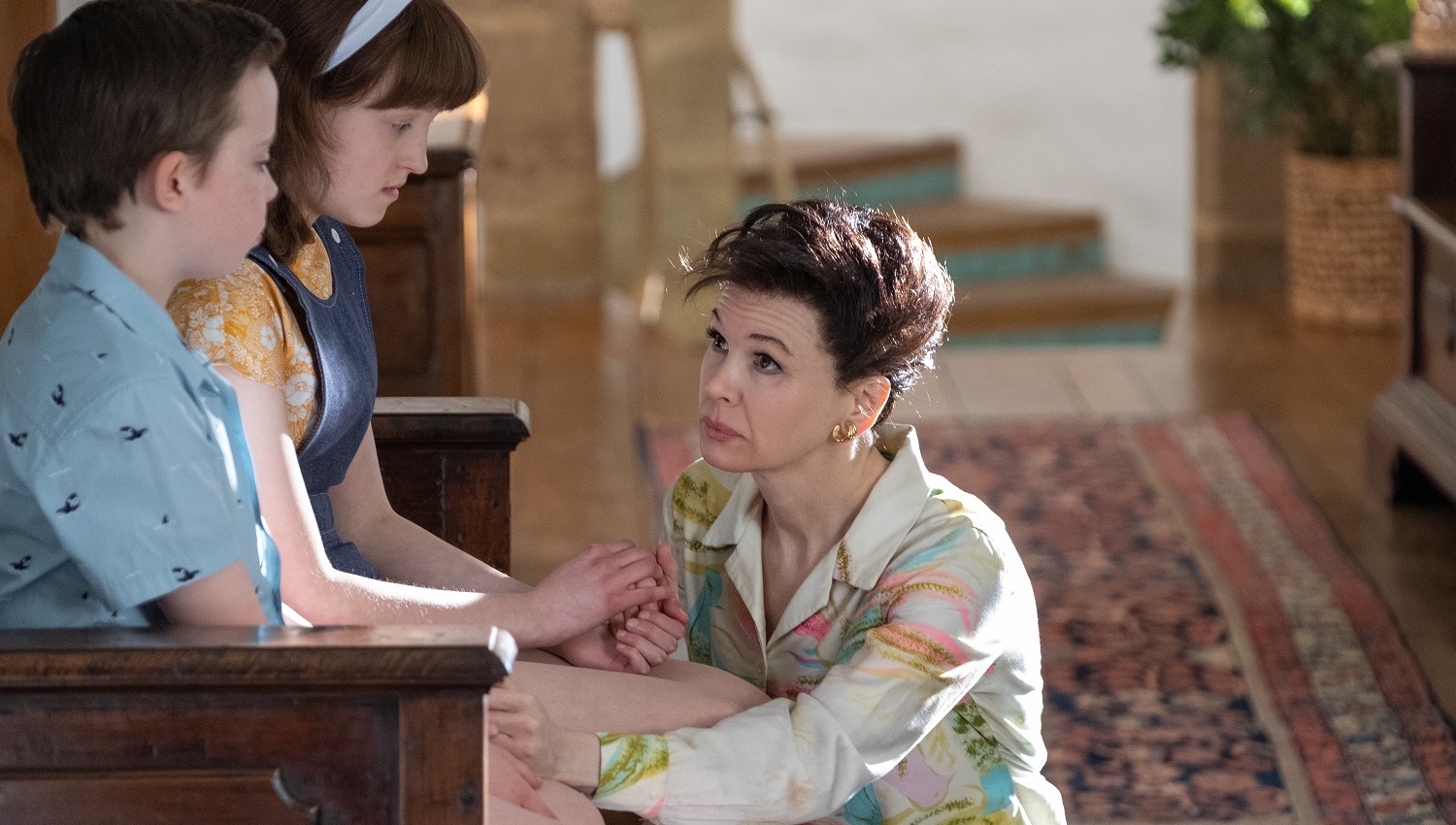
Judy
Dustin Chase
Academy Award winner Renee Zellweger (“Cold Mountain,” “Chicago”) drops a house on the acting competition this year, portraying one of our most beloved film icons. “A blip” is what Bridget Jones would have called Zellweger’s soft return in the third installment of the Jones character, but “Judy” isn’t simply a comeback, it redefines the Texan’s career. Since winning that surprise Golden Globe for “Nurse Betty”, Zellweger has overcome whatever limitations critics and the public set for her, singing and dancing, gaining weight for roles, equally balancing comedy and drama. Whatever the reason for her ‘sabbatical,’ as she called it at Telluride, cinema is a richer place with Zellweger in it. “Judy” is one of the rare films in Zellweger’s career, where she truly disappears into the character. This was a role that required strength and stamina, both vocally and physically, to nail Judy Garland at the end of her life.
At 16 years old, a hesitant Frances Ethel Gumm from Grand Rapids was turned over to MGM studios where she would become Judy Garland, a young star to captivate the world. Her lack of a normal childhood and the mental abuse from men with influence over her created great dysfunction for her later in life. Thirty years after “The Wizard of Oz”, Garland (Zellweger) finds herself broke, thrice-divorced, and unable to provide for her two youngest children. London was the only place where she could find work crooning to sold-out shows in the winter of 1968. It’s a desperate attempt to pay debts and find a way to provide for her stay united with her children. Rosalyn Wilder (Buckley), the assistant in charge of the show, has her hands full ensuring Garland gets on stage each night. The booze, pills, and trauma don’t exactly encourage Garland’s best work, but every time she looks at photos of her children, she remembers why she can’t fail.
Even if Judy was stronger in the “below the line” categories, Zellweger is so magnanimous, it would be hard to pay attention to anything else.
While it’s a wonderful experience watching Zellweger bring Judy Garland back to life, the screenplay is a somber examination of a life corrupted by the business. For “Oz” fans unaware of Garland’s negative experiences on set, it calls into question our love for something that was so painful for her. Tom Edge’s screenplay based loosely on the stage play “End of the Rainbow,” maintains a juxtaposition of how one person could bring audiences so much joy only to her own detriment. In one of the films many unforgettable moments, Garland explains to her children that she doesn’t have a chimney for Santa to deliver presents from, and therefore she is no good for them. “Judy” isn’t all empathy, however, the audience often sides with the frustrations of Wilder or the band, who are simply trying to do a job that Judy’s lifestyle makes more difficult.
“Judy” joins other films exploring the less flattering sides of Hollywood, “Film Stars Don’t Die in Liverpool“ is a recent example in the same vein. It’s the perspective beyond the yellow brick road that “Judy” provides the audience, especially for the generations not as familiar with Garland. “I’m only Judy Garland for an hour every night,” she says in an interview. “The rest of the time I am a real person.” Director Rupert Goold (“True Story”) and Zellweger create a believable portrait. For Zellweger’s part it isn’t as much about the look, but the embodiment, from twitches, to hand movements, and of course, Zellweger’s voice will continue to wow those forgetful of her vocal range in “Chicago” or “Down with Love.” Zellweger’s performance largely overpowers all the films other elements which are not that strong, to begin with. The production design is forgettable, the script has a few weak spots, aside from makeup and the stories emotional impact on the viewer it’s not a technical marvel. Even if Judy was stronger in the “below the line” categories, Zellweger is so magnanimous, it would be hard not to pay attention to anything else.
Final Thought
Zellweger’s performance in Judy is the type of accomplishment that re-defines a career and time-stamps a year of great performances.
